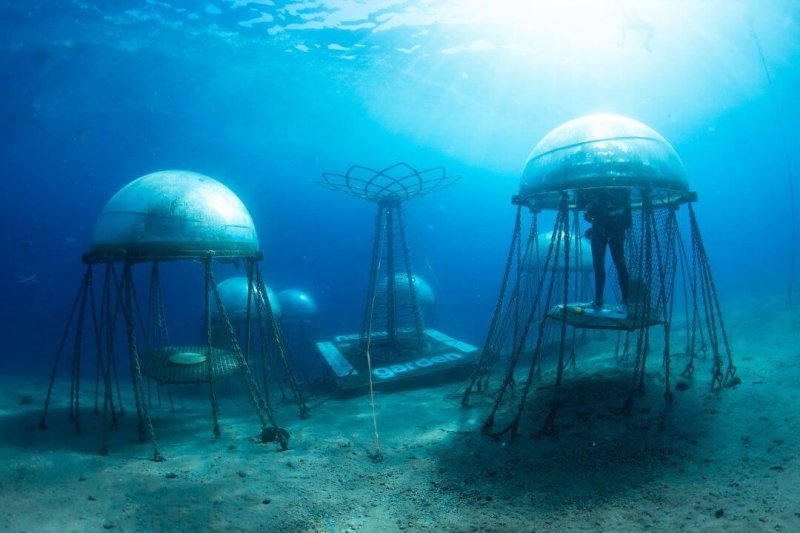An over-reliance on pesticides, displacement of wildlife, the wasting of gallons of water and the generation of harmful emissions are damaging our world.
So, scientists and entrepreneurs are hoping underwater farming could address these issues by growing crops under the ocean, eliminating the need for pesticides, while also reducing water use and carbon emissions.
Indeed, the UN estimates the world could easily be fed if we used just 2% of the oceans for sustainable farming.
Aquaculture has long been used to grow and harvest foodstuffs such as seafood, but several companies are now looking at ways of farming traditional crops such as strawberries and herbs under the sea.
Nemo’s Garden is an underwater farming project consisting of six air-filled plastic pods, or biospheres, anchored at the bottom of the sea off the coast of Noli, Italy.
Created by diving company Ocean Reef Group in 2012, the project has already yielded everything from tomatoes, to courgettes, beans, mushrooms, lettuce, orchids and aloe vera plants using hydroponic techniques.
This means that plants are grown, without soil, in a nutrient-rich solution to deliver water and minerals to their roots, in a controlled environment.































